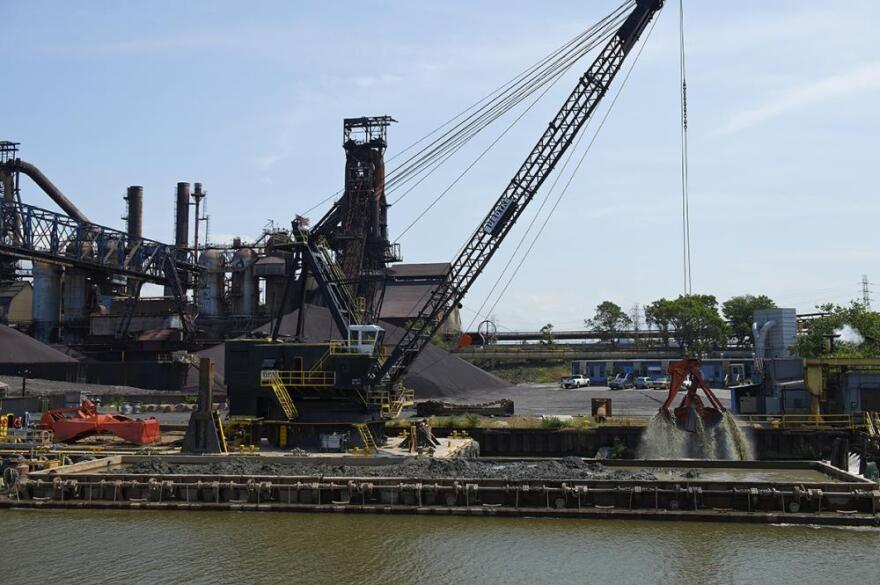By ideastream’s Brian Bull
The Port of Cleveland and the U.S. Army Corps of Engineers have dredged up old arguments…namely over how to dispose of sediment gathered twice a year from the Cuyahoga River.
Port officials wanted the Corps to amend their federal policy on river sediment disposal by agreeing not to deposit the muck directly into Lake Erie. But this week, the Corps rejected that proposal, insisting – again – that PCB levels in the dredged sediment are safer than when the Cuyahoga was heavily polluted, decades ago.
Last spring, a U.S. District Judge had to order the Corps to carry out its dredging operations along a six-mile stretch of the Cuyahoga River and deposit the sediment in containment facilities.
Jade Davis with the Port of Cleveland says if they have to, they’ll work to get judicial intervention again this year.
“We hate to have to do that because we see the Army Corps as a valuable partner in our effort to keep harbor maintenance and shipping and commerce coming in and out of Cleveland harbor, and also with the environmental well-being of Lake Erie.”
U.S. Senator Rob Portman says he and fellow Ohio Senator Sherrod Brown both put language into the latest federal spending bill that prohibits the Corps from using any of that money for open lake dumping, and is incredulous it’s still being discussed:
“Well look, you’d think they’d get the message by now, because we’ve all been clear – the Ohio EPA and the Congress -- for this fiscal year they can’t spend money on dumping in the lake,” says Portman.
“They still insist that it’s safe to dump in the lake. It’s a risk to the environment. Particularly at a time when we’re fighting these algal blooms. We want to be sure the lake is clean for drinking water, that it’s able to be used for recreation and for fishing.”
Dredging is done to prevent barges and similar ships from getting stuck in the river.
Meanwhile, a Corps spokesman says they have no intention of putting sediment into open waters without a state water quality certification. Andrew Kornacki says the Corp has an application for that filed with the Ohio EPA….the same agency that filed a lawsuit last year against the Corps’ open lake dumping plans. That lawsuit is still being reviewed.



